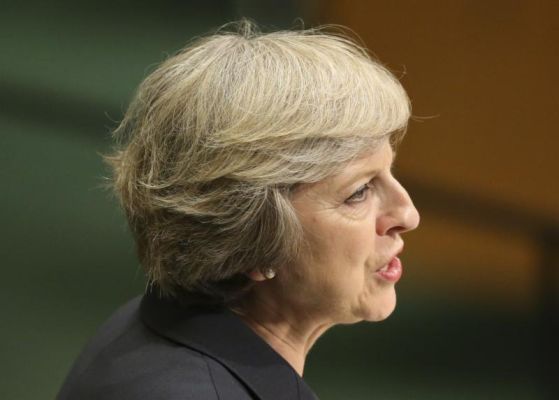-
Tips for becoming a good boxer - November 6, 2020
-
7 expert tips for making your hens night a memorable one - November 6, 2020
-
5 reasons to host your Christmas party on a cruise boat - November 6, 2020
-
What to do when you’re charged with a crime - November 6, 2020
-
Should you get one or multiple dogs? Here’s all you need to know - November 3, 2020
-
A Guide: How to Build Your Very Own Magic Mirror - February 14, 2019
-
Our Top Inspirational Baseball Stars - November 24, 2018
-
Five Tech Tools That Will Help You Turn Your Blog into a Business - November 24, 2018
-
How to Indulge on Vacation without Expanding Your Waist - November 9, 2018
-
5 Strategies for Businesses to Appeal to Today’s Increasingly Mobile-Crazed Customers - November 9, 2018
UK central bank warns of financial risks in wake of Brexit
Bank of England financial policymakers have warned that the United Kingdom economy faces a “challenging period of uncertainty and adjustment” following the Brexit vote.
Advertisement
The central bank’s Financial Policy Committee, which monitors financial stability in the country, said today, “The FPC will remain committed to the implementation of robust prudential standards in the United Kingdom financial system”.
With UK-regulated banks’ future access to European Union markets unclear, Britain’s government is likely to come under pressure from the industry to make London a more attractive location.
The government is expected to come under a lot of pressure to ensure London remains an attractive destination for financial firms and the Confederation of British Industry has already called for lenders to be removed from the “naughty step”.
It said that capital rules would not be watered down regardless of Britain’s future relationship with the EU.
The committee said the Bank of England’s decision to cut interest rates and boost stimulus after the referendum had helped prevent more dire consequences in the short term.
The new Chancellor Philip Hammond will have to decide to extend the scheme – and the Bank’s view today may give him cover to scrap it.
In its annual review of the Treasury’s Help to Buy Mortgage Guarantee scheme the FPC said the controversial scheme did not present any “material” financial risks – but also noted that its closure at the end of the this year would be unlikely to have any impact on the overall availability of mortgages.
The BoE will also publish its stress test of banks, which will include looking at how they would cope with the risks created by China’s rapid lending growth.
The panel underscores the threat to the commercial real estate market, where “the risks of a sharp adjustment are crystallizing”.
Several property funds temporarily stopped investors from accessing their cash in the days following the Brexit vote.
Advertisement
The weaker pound will smoothed the adjustment in the current account over time, but the FPC said if overseas investors’ appetite to invest in the United Kingdom diminishes it would result in tighter funding conditions for the United Kingdom real economy.





























